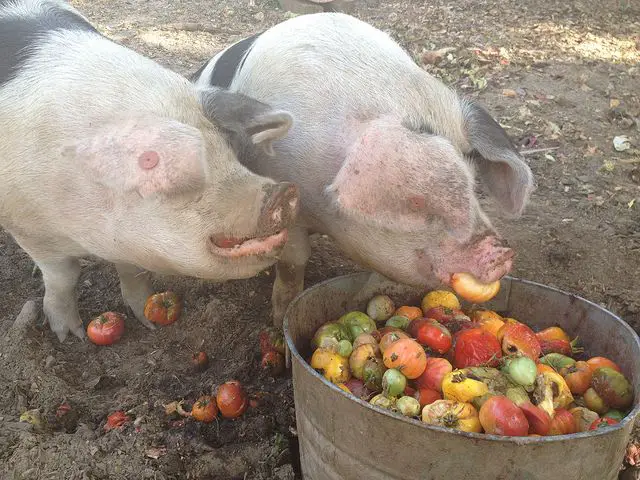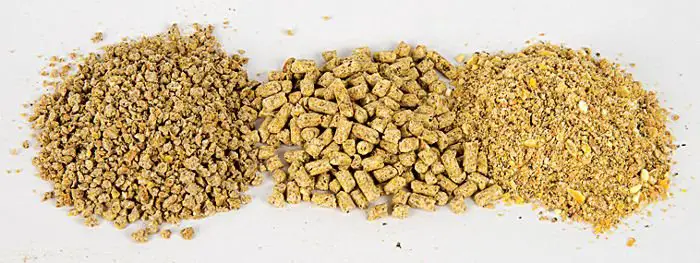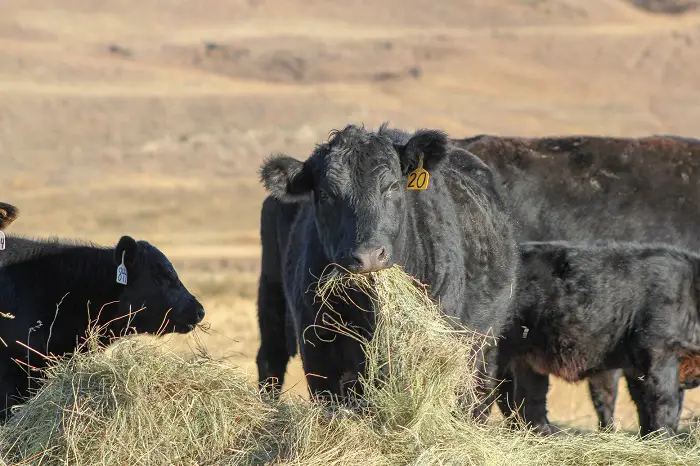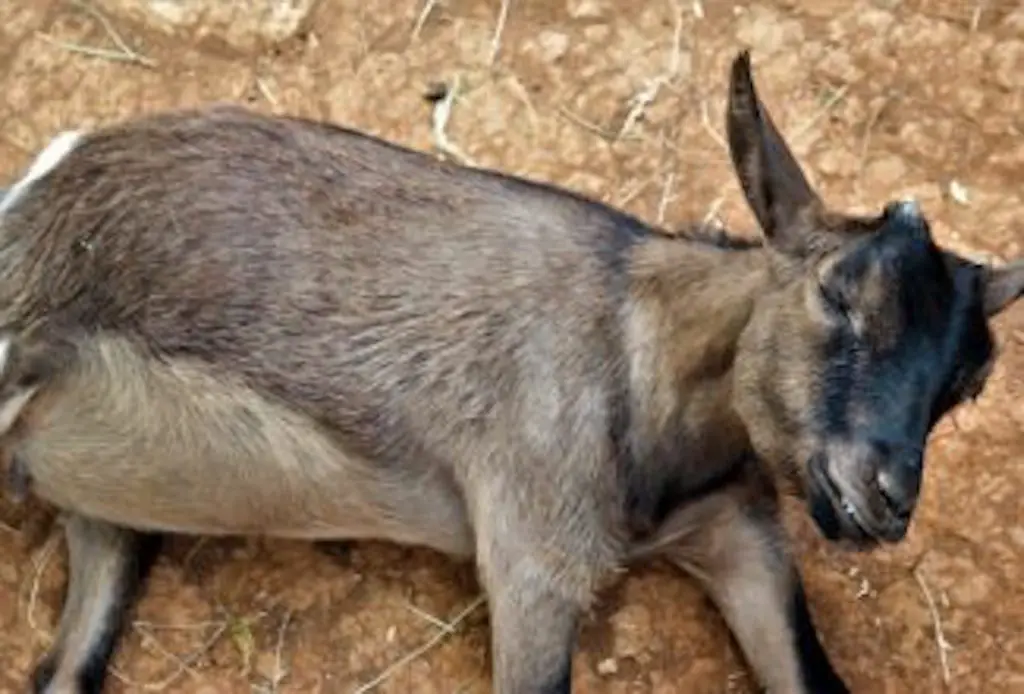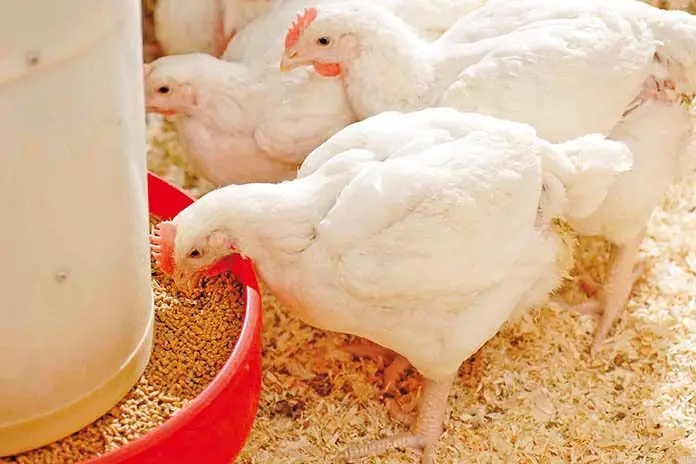There has always been a debate on whether tomatoes are vegetables or fruits, the answer depends on the context. Whatever the classification tomatoes have found themselves in almost all human diets across the world, originally from South America. With so many varieties and quantities of tomatoes available globally, pigs are bound to pick one or two for eating. This is not a problem if the tomatoes are in a ripened state and consumed in moderation as pigs are not really picky eaters.
Contents
What Are Tomatoes?
Tomatoes are a very common fruit or vegetable used widely across the globe as an ingredient or side dish consumed raw or cooked. Tomatoes originated from South America and were brought to Europe in the 16th century and became a part of most dishes in Europe and across the world. Tomatoes are part of the nightshade family which includes eggplants, peppers, and potatoes, which makes parts of the plant noxious to some animal species due to the presence of toxins in the unripe fruits and foliage. Tomatoes are not widely used in animal feeding but residues or rejects from tomato processing can be used to feed animals.
Nutritional Profile of Tomato Fruits
Although tomatoes are rich in vitamin C they pretty much lack any other useful nutrient requirement for pig nutrition and growth. Supplemental feeding of tomatoes to supply some vitamin C can be cost-effective where cull or reject tomatoes are available in large quantities. Tomato fruits are very juicy berries which meant they have a very high water content almost 95% water. Tomatoes have a moderate amount of protein content of about 16% and fiber content but this tends to be diluted by the high water content of the fruits. This means that you would need to feed a lot of ripe tomatoes to reap these benefits, pun intended.
What Parts of the Tomato Are Safe for Feeding Pigs?
Although pigs are not fussy eaters there are other things they cannot eat due to various reasons, for tomatoes it is because of the large quantity and variety of toxins in the plant or vines. The only real safe part of the plant for pigs to eat are the fruits especially the ripe ones as they do not contain any toxins. Ripe cull tomato fruits can be fed to pigs in moderate amounts without any effects on the growth and well-being of the animals. It is safe to say this applies to all breeds of pigs as there has not been much research into the effects of these toxins on different pig breeds.
Useful Tomato By-products Useful for Pig Feeding
Because most tomatoes are grown for human consumption most tomatoes fed to pigs are rejects or by-products of tomato processing into various sauces and pastes used in human food. Below are some examples of by-products from the processing of tomato fruits into various products which show potential or are being fed to pigs with good results in the tropics.
Tomato Pomace
The tomato pomace is a by-product from tomatoes extracted during the making of tomato paste, that can be used for feeding pigs. The by-products are not uniform in nutrition and quality depending on processing, type of tomato, and products being produced. This variability in quality means, that the by-products need to be tested for nutritional composition before including in pig feed. Pomace has a higher protein content than tomato fruit.
Can Pigs Eat Tomato Skins and Seeds?
The tomato skins and seeds can also be used for feeding pigs with the seeds having a superior protein content than the skins. The by-products are also of variable nutrient composition depending on processing for example so processors use sodium hydroxide to help skin tomatoes, with the resultant product having a high sodium content.
Tomato Seed Cake
This by-product shows potential for feeding pigs but more research needs to be conducted as the by-product has a high fiber content. The oil content of this cake is low, less than 5%, as it is extracted to make soaps and cooking.
Constraints of Feeding Tomatoes to Pigs
Tomatoes do not rank high on the list of feed ingredients for pigs due to a number of issues some of which have already been discussed. Both the vines and fruits can be toxic and care has to be taken when feeding tomatoes. The tomato fruits should also only be fed to pigs when ripe, so mostly only as a snack for pigs.
Pesticides
Tomato cultivation uses a lot of dangerous chemicals to rid the plants of pests and microbes that the tomato vines are sustainable to in their growth. Most plants in the nightshade family are very susceptible to attack by various fungi which also leads to a lot of fungicides applied throughout the life of the tomato. When feeding tomatoes to pigs care should be taken to wash the fruit thoroughly to remove any residual pesticides.
Plant Toxins
Tomato vines contain a variety of toxins to defend the plants against attack by insects and microbes. These chemicals include tomatine, dehyrotomatine, and solanine which are toxic to many animals too apart from pigs for example rabbits are highly susceptible to these toxins.
Signs of Solanine Poisoning in Pigs
If pigs accidentally consume large quantities of tomatoes or parts of the plant, stems, and leaves the following symptoms can show solanine poisoning:
- Scouring or diarrhea
- Vomiting
- Weakness
- Head tremors
Conclusion
Although pigs can eat ripe tomato fruits, they do not make the best feed for pigs and should be fed in moderation. Pigs should not be fed tomato vines and leaves as these contain toxins noteworthy being solanine which can be lethal to pigs. By-products of tomato processing can be included in pig feed as part of a complete pig diet but this is still limited to less than 3% of the final diet. In conclusion, the feeding of tomato fruits and their by-products to pigs is safe at moderate levels and more work is still being done to evaluate their effect on the growth performance of pigs.
